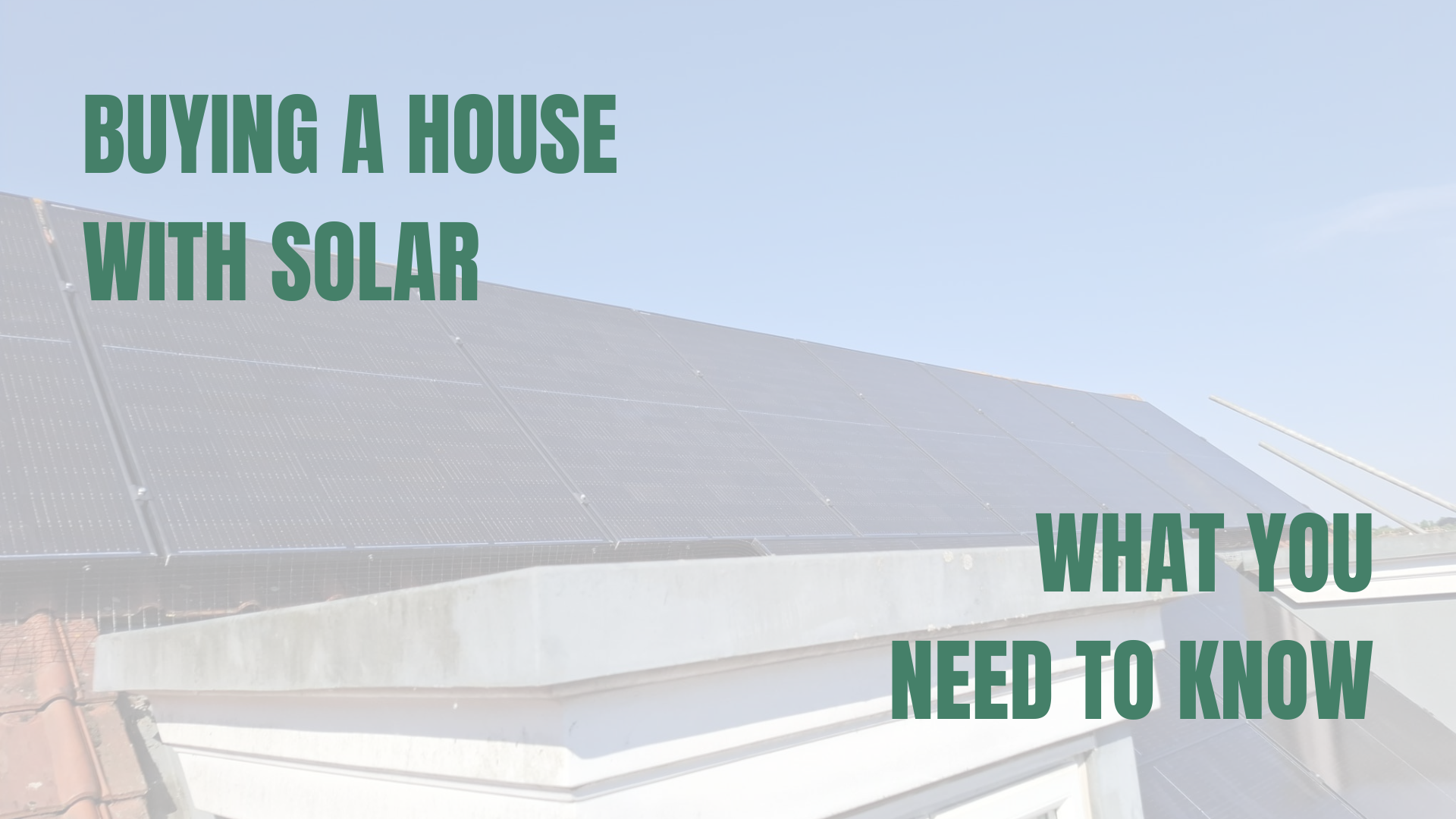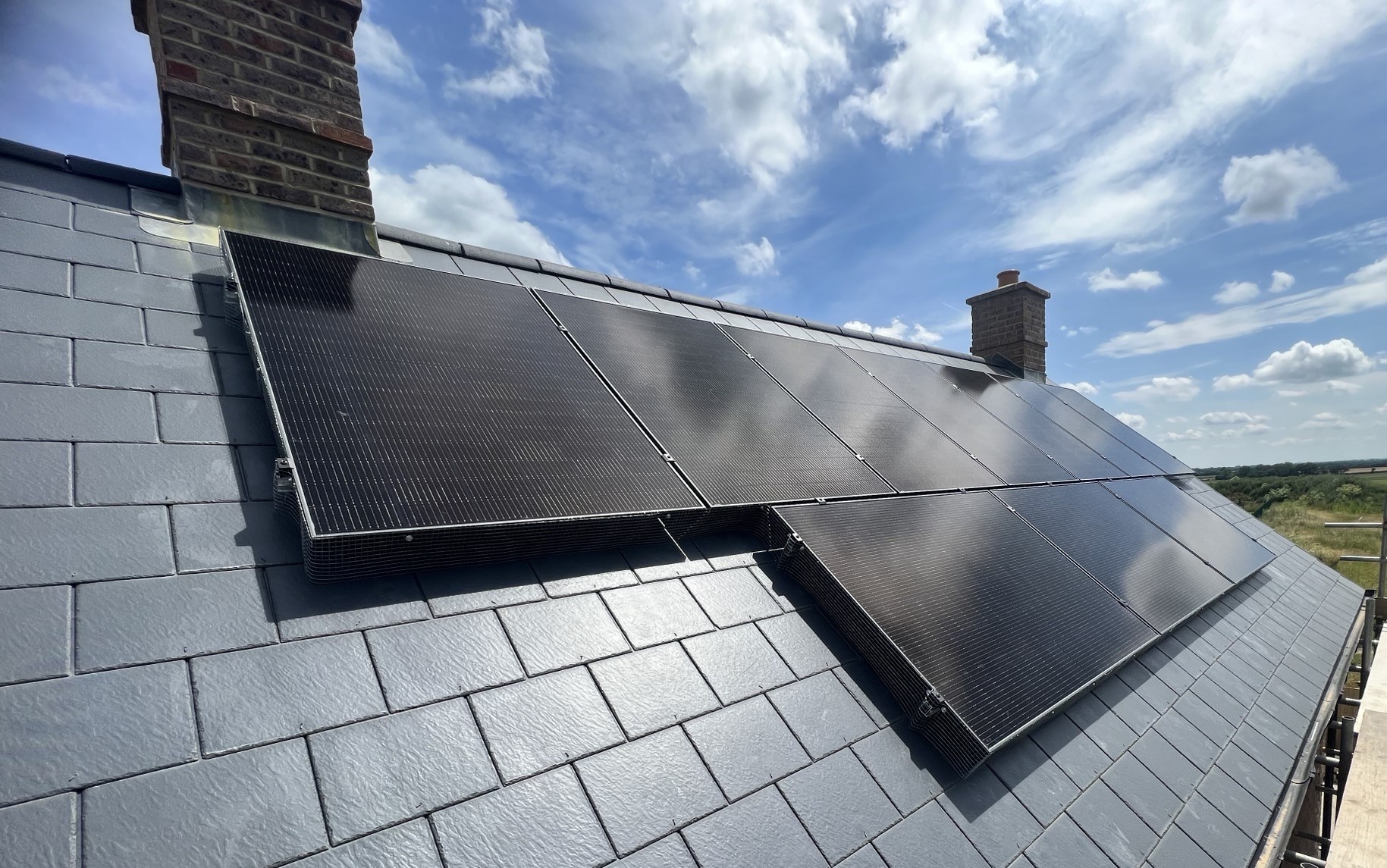Solar panels can add value to a property, making a home with an existing solar system an attractive investment. Almost 65% of buyers would consider a home with renewable energy installed. A solar PV system offers long-term savings, reductions to your carbon footprint and can provide energy independence at a time when energy prices remain volatile. However, purchasing a property with solar panels can feel overwhelming. Here’s everything you need to know before buying, or selling, a home with solar panels.
Why Solar Panels Are a Smart Choice
Solar energy is one of the cleanest, most efficient and cost-effective sources of electricity. The price of solar has dropped significantly in the last 10 years, making it more affordable than ever.
Should You Buy a House with Solar Panels?
In almost every case, the answer is yes. Buying a property with solar panels already installed can make financial and environmental sense, especially as the cost of energy bills continues to rise. According to the MCS Dashboard, the average cost of solar panel installation in 2025 is around £7,500 down from over £10,000 in 2023. 65% of buyers are likely or very likely to purchase a property that has a solar PV system installed and on average, solar panels save one tonne of CO₂ per year, about 15% of a household’s annual carbon footprint.
Financial Benefits of Buying a Home with Solar Panels
Solar panels can deliver long-term savings:
- Provide free energy year-round, saving up to 70% on electricity bills per year.
- If panels are already installed, you are avoiding the upfront installation costs, shortening the break-even period.
- Reduce reliance on the National Grid by up to 50% and earn money through the Smart Export Guarantee (SEG) – up to £200 a year in some cases.
- Minimal maintenance is required, just ensure your panels aren’t shaded or dirty. Check your inverter periodically and monitor your app for early indication of problems.
Fully-Owned vs Leased Solar Panels
Fully-owned panels are straightforward, the Feed-in Tariff or SEG agreements are transferred to the new owner and contracts continue seamlessly. Maintenance responsibilities transfer with the property just like any other home system. Leased panels can be more complicated, with some mortgage lenders being reluctant to approve a property with leased equipment, your solicitor should review lease agreements, associated fees and whether the panels affect future home improvements or resale.
Key Questions to Ask Before Buying
Before committing to a property with solar panels, make sure you have all the details:
- Is there a solar battery? A battery stores excess energy, increasing efficiency and savings.
- Are the panels secure and properly connected? Improper installation can reduce savings, affect SEG payments and result in costly repairs.
- When were the panels installed, and by whom? This helps assess efficiency, expected lifespan and warranty coverage.
- What warranties are in place? Standard solar panel warranties last 25 years, most inverters come with at least 5 years warranty and most batteries come with a 10 year warranty.
Summary
Buying a home with solar panels generally makes financial and environmental sense. Solar panels save energy, reduce CO₂ emissions and provide a small income via SEG. However, it’s important to gather full information about the system, check for ownership or leasing issues and consult your solicitor before completion.
With careful planning, purchasing a property with solar panels is a smart long-term investment for both your wallet and the planet.
Interested in Solar for Your Home?
Contact SolarTherm UK today for a free bespoke design package, tailored to your property, usage and future energy needs. No hard sell, just honest, expert advice. All our quotes are backed by EPVS verified estimates and our installers are MCS-certified, ensuring your system is high-quality and safely installed.
Your home. Your energy. Your future.





